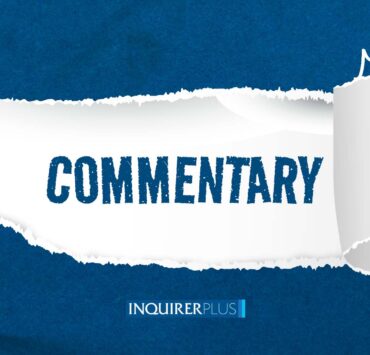Crossing the line

It was a bolt out of the blue, not least because it was announced matter-of-factly, without any explanation: one day Nicolas Torre III was chief of the Philippine National Police, the next day, he wasn’t. It was left to the media to cobble together the reasons for his summary dismissal, noteworthy for the absence of any sort of face-saving platitudes from the Palace. What emerged was that in his eighty-odd-day stint at the helm of Camp Crame, Torre reassigned and fired top brass, culminating in the reshuffle of two police lieutenant generals, Bernard Banac and Jose Melencio Nartatez, both PMAers: Nartatez was, at the time, No. 2 in the PNP hierarchy; he was sent to Western Mindanao, and Banac was elevated to No. 2.
Torre’s Aug. 6 decision was declared null and void by the National Police Commission (Napolcom), the body chaired by the secretary of the Department of the Interior and Local Government that exercises immediate oversight over the PNP. Third-level appointments, it said, required its approval. Torre, for his part, rolled out Banac during an Aug. 18 flag-raising ceremony in Crame as his new No. 2, shrugging off the Napolcom resolution as “an administrative matter” while grandly announcing, “No order, no obstacle, and no challenge can break our unit and our commitment to the nation”—which wasn’t the point. The point was one widely understood by those who have been in government: Torre had defied a direct order from his own chief, the Interior secretary.
This real point was underscored by the Executive secretary, issuing an order informing Torre he’d been fired, and releasing the news that the President had approved the appointment of Torre’s successor. Torre, for all his perceived popularity and successful public relations, had gone rogue. He had exceeded his authority, and considering the whole problem with the PNP in this administration was that its top brass were perceived to be either too loyal to the President’s predecessor or too used to behaving with impunity, it did not do well at all to tolerate a chief PNP who would publicly defy his superiors.
The flipside is that Torre’s moves and fall from power are being understood as being about more than where he obviously crossed the line: he had antagonized the top brass, which still looks down on Torre as a mere product of the PNP Academy (he is the first graduate to make it to the police’s top job). The implication seems to be that Banac benefited at the expense of Nartatez, who has even been called a “PNP chief-in-waiting,” embarrassing him and, more to the point, his perceived backers. Another item in Nartatez’s CV suggests why it would be wrong to slight him: he was, in 2017, the Ilocos Norte chief of police. According to this way of thinking, it matters that the old guard, also from this perspective, looked askance at the era of PMAers leading the police coming to a premature end with Torre’s moves.
It can thus be argued that with Torre sacked, and Nartatez appointed new PNP chief, balance has returned to the seniority system. Though Nartatez was the youngest in his PMA class, he will be the last to leave the service when he retires in 2027.
The lesson, not just for a police careerist, but anyone in a big organization, is that leapfrogging your peers in terms of promotions carries with it the risk, not just of passing over your seniors who will hold it against you for the rest of their time in the service, but more to the point, it leaves you vulnerable to getting into trouble because you lack seasoning and thus, judgment that comes from rising through the ranks.
An example had to be made, and the only question that remains is: Will it still make sense to give Torre another job in the government? Just as his own actions got him into hot water, how he reacts after being fired will determine whether he is given a job equal to his competencies, or at least as a consolation prize, or none at all as a warning to other possibly uppity generals. Meanwhile, the new PNP chief, who has an otherwise spotless record, has two years to prove himself and furthermore, leaves open one more PNP chief appointment the President can make–a year ahead of the national elections.





















Reflections on the 2026 national budget